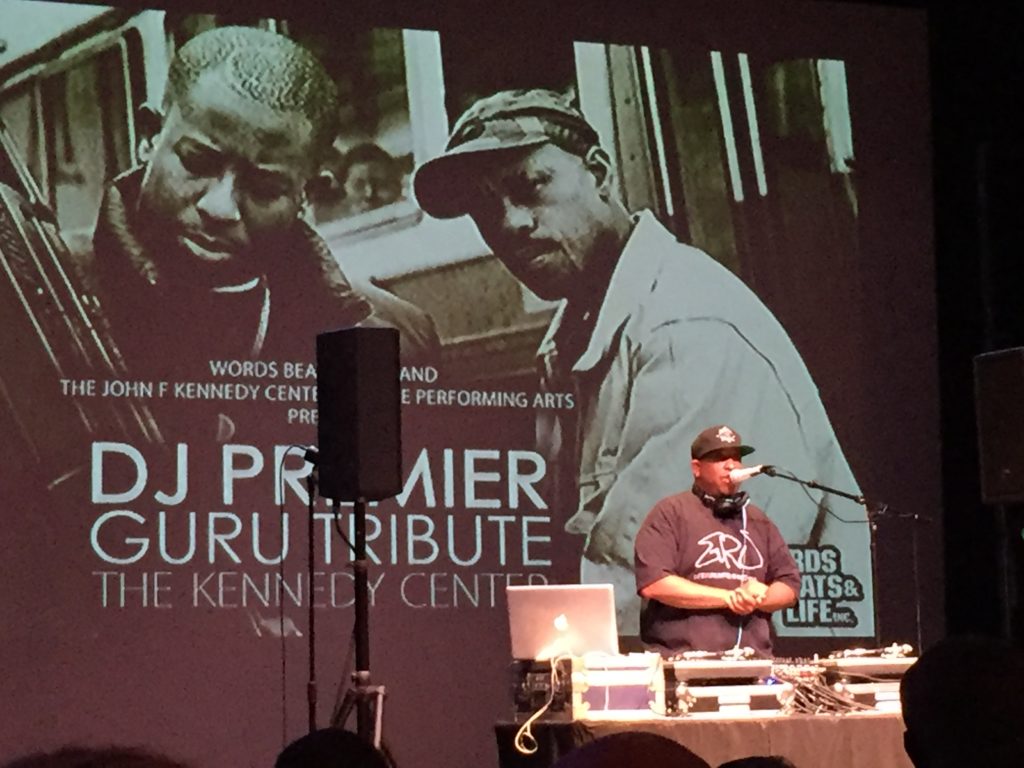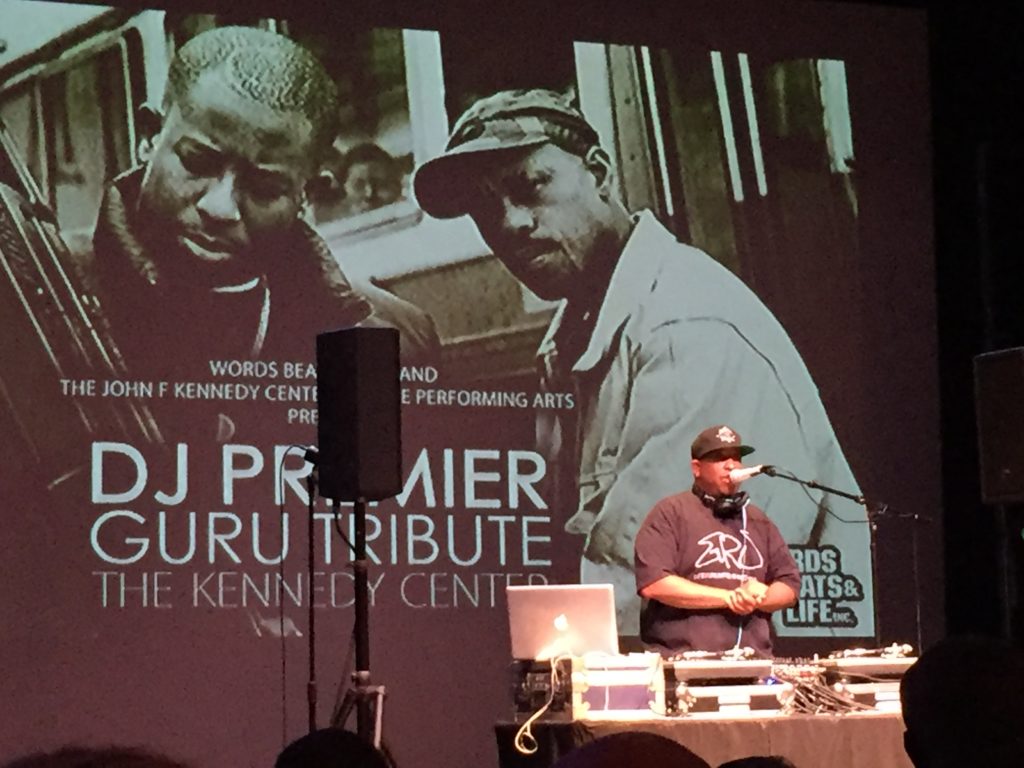“This is the music that we give tribute to – they gave it to us, that’s why we give it to you” – MC Guru
America is divided. A by-product of recent events, though, is the nationwide outcry for change, any change at all – some are whimpers, some soul-piercing shrieks, others more visionary – but it’s safe to say there’s a call to revolutionize some of the basic inner workings of our country.
Often the most effective catalysts of change are actually small, grassroots movements. Rather, the ambassadors of these movements tend to focus on severity and authenticity of change, making sure that the format is approachable. They’re willing to sacrifice scale for quality.
Fittingly, Words, Beats & Life Inc. sprouted in our bustling capital of D.C. where, despite the state of America, diversity is embraced to the point it’s almost akin to pop-up advertisement (see: national embassies and the amount of kebab houses per capita). Founded by Mazi Mustafa and a group of classmates at the University of Maryland, WBL began as a volunteer organization to provide arts-centric after school programs with the belief that “the ink of the scholar is equal to the vinyl of the DJ”.
Their M.O. has evolved into a multi-faceted, year-round effort to educate tomorrow’s artists regardless of age, race, religion, or any other divider. Its vocational programs are still the main pillar and cover topics from beat production to chess, but the organization has expanded into street art commissioning, filmmaking competitions, international retreats, city cookouts and even apprenticeships, where current leaders are passing on the torch of community management and government liaising to young ambassadors.
RIZE Entertainment had the chance to attend a small, yet exciting, segment of this eclectic organization – the five-day, multi-venue Words, Beats & Life Festival. More comparable to SXSW than your typical 2-3 stage music festival, this event is as comprehensive as its founding body. While most activations were held at the Kennedy Center adjacent to George Washington University and the beautiful Potomac River, WBL made an appearance at three local campuses — American University, Howard University and University of Maryland — the artist-driven Bucketfeet shoe store, and a local bookstore/coffeehouse.
The festival kicked off with a Youth Poet Laureate competition wherein, in extremely early preparation, WBL partnered with the DC Public Libraries to offer an actual, inaugural role as Washington DC’s rhymesayer. The winner, Kenneth “Kenny” Carroll III out of Wilson High School, has not only been bestowed with the new title but has also secured a book publishing deal and corresponding book tour.
Next up were the three Campus Invasions that gave regional taste makers floor time at the illest universities to discuss some pertinent topics:
- Making It Work: Gender, Creativity, and Entrepreneurship in Hip-Hop Culture
- A Scholars Ambition: Hip Hop and Higher Education
- Turn’t Up: Create & Amplify Your Brand in College
In contrast to the modern day college course, the topics in a vacuum demonstrate real-life applicability. The emphasis on vocation and empowerment are clear, reflecting the organization’s growth mindset and ultimate goal to inflate its current, maybe humble, knowledge base to explosive proportions through youth education. Not to mention the tie-in of hip-hop — a culture often misunderstood — gives today’s elastic minds the opportunity to take command of their own perceptions.
We had a lot of mindless fun, too – at D.C. native rapper Oddissee’s performance, a traditional 3v3 BBoy/BGirl Competition, and a heartfelt set from legend, DJ Premier.
A seemingly immortal luminary of instrumental hip-hop, Premier dedicated his hour to the late MC Guru (1961-2010). Together, Guru and Premier formed Gang Starr and helped lay the groundwork for some of the foundational East Coast sounds we know today. In between skillful record scratches and infectious head nodding, Premier prefaced each vinyl with a short hip-hop history lesson. He revealed that his and Guru’s careers were far from self-contained and, instead, involved a comic universe-like assembly of acts and collectives whose prerogatives were to lift each other up in order to manifest their own success.
A striking example of this communal empowerment was the story of James Heath. James floated in the orbit of the Gang Starr Foundation, an expanded collective that formed five to six years after the original duo, eventually running into trouble with the law. DJ Premier escorted young James to his court appearances when, finally, the judge gave him a unique ultimatum – owing his violence to his longstanding hobby as a boxer, she gave James the option to quit boxing and make a record with Chris (Premier) or face jail time. The choice was obvious, so James took on the stage name Lil’ Dap to form Group Home, a short-lived subsidiary of Gang Starr operations with two records to their name.

We constantly ran into this theme in our short time with Words, Beats & Life. Even in competitive formats like the 3v3 or the Paint Jam Photography Competition, WBL was showcasing art forms that may require face-offs but ultimately sought to flaunt them to the broader community. The festival pursued civic partnerships and government buy-in to curate a holistic, near city-wide effort. The University of Toronto’s orchestra ensemble behind The HHO & The Illharmonic Orchestra event even collaborated to uplift the wider arts community.
WBL Fest served as an experiential reminder that we are all advocates for art, and the collaborative nature of hip-hop makes for a perfect vehicle of societal change.



